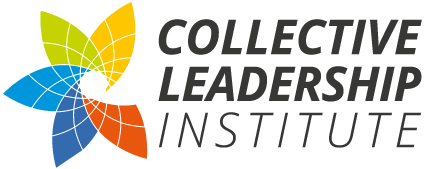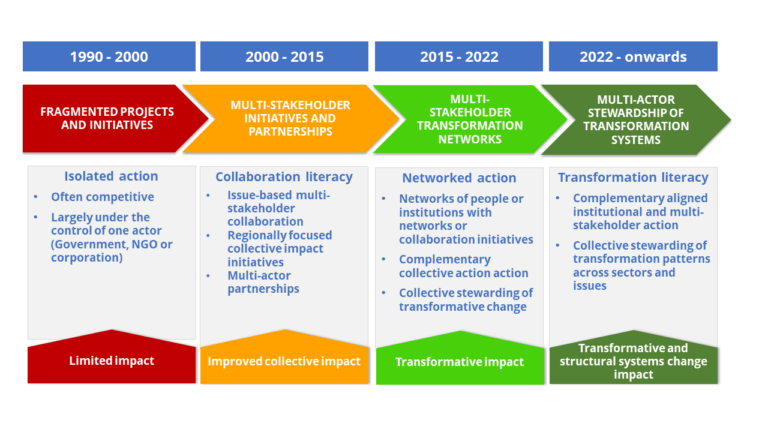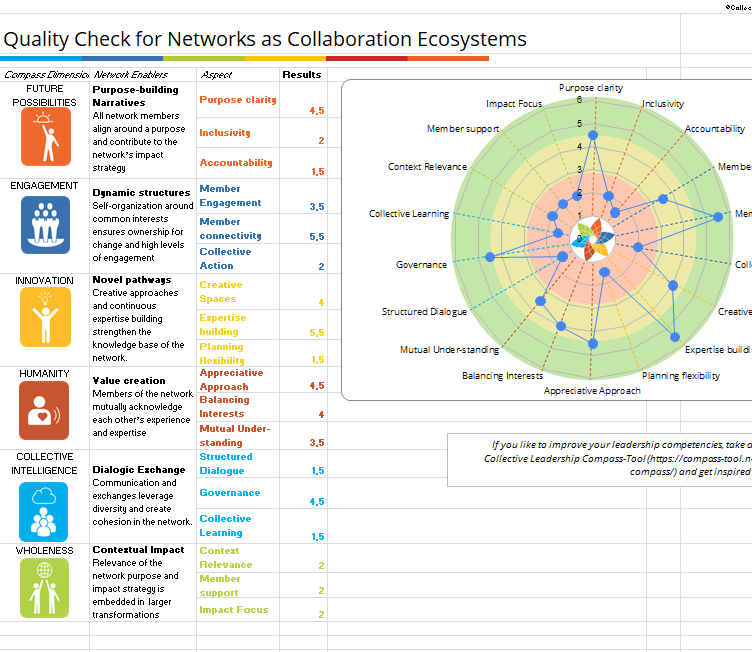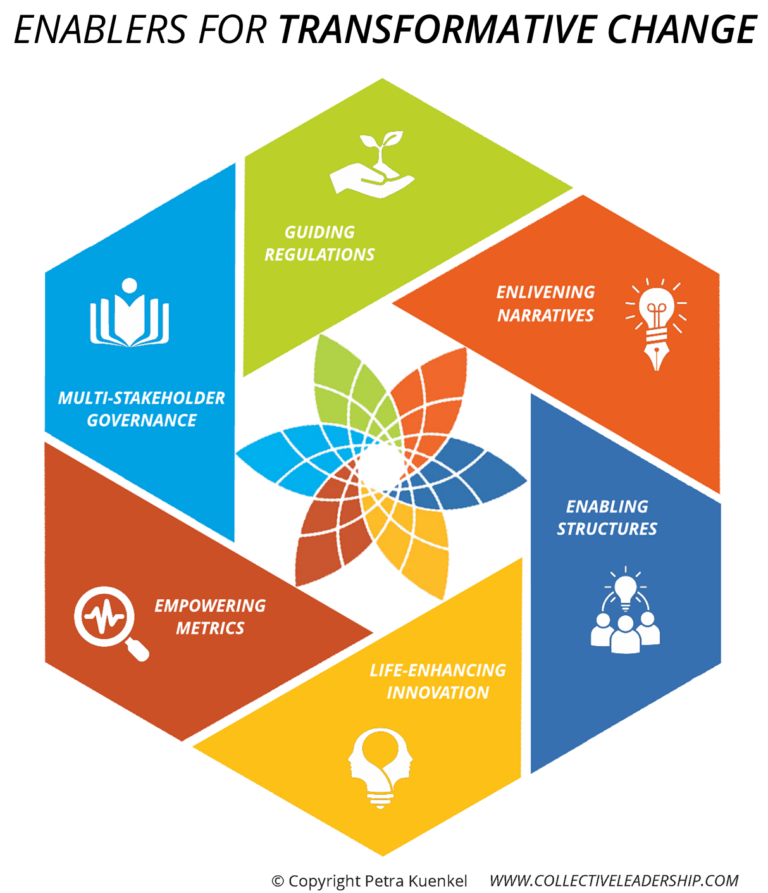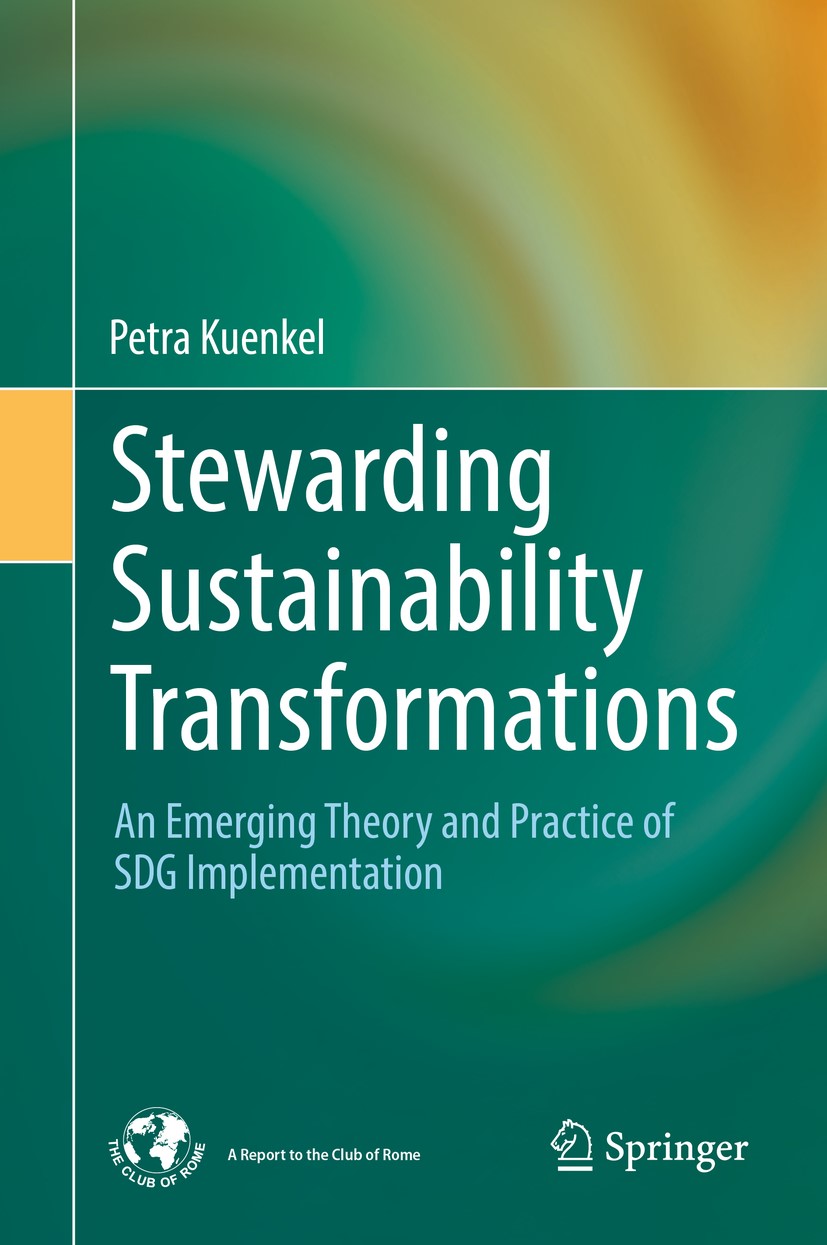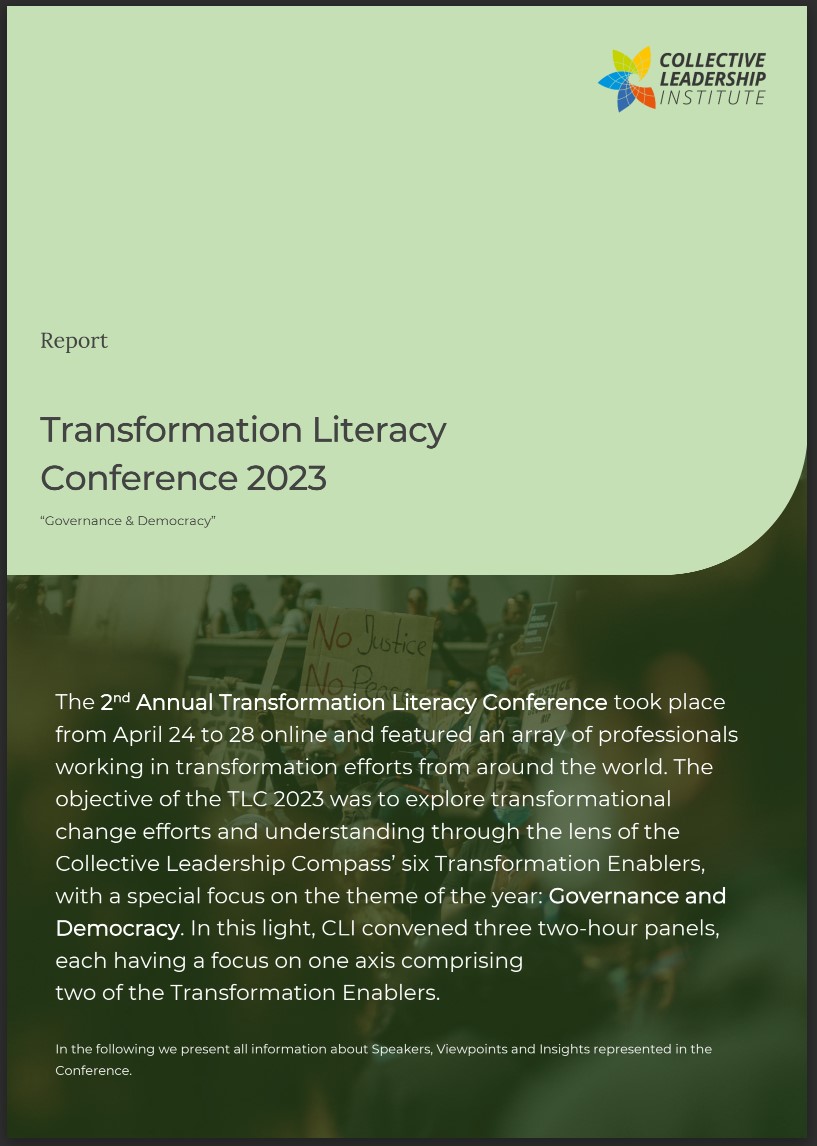It is time to bring human beings back to where they belong: into the center of attention as transformation agents towards a thriving future in a sustainable and interdependent world. Collaboration literacy is a pathway to transformation literacy – the skill to steward transformative change collectively across the boundaries of institutions, nations, sectors and cultures. A skill that – given the current distance to the far ahead goal of a world that works for 100% of humanity and the planet – is not a nice to have option, but a must.
The urgency for humankind’s ability to consciously change behavior so as to stay within the ‘safe operating space’ of the planetary boundaries suggests that designing and implementing transformative change is a skill requiring widespread distribution. It needs to become the day-to-day management approach of governments, development agencies, corporations and civil society activists.
